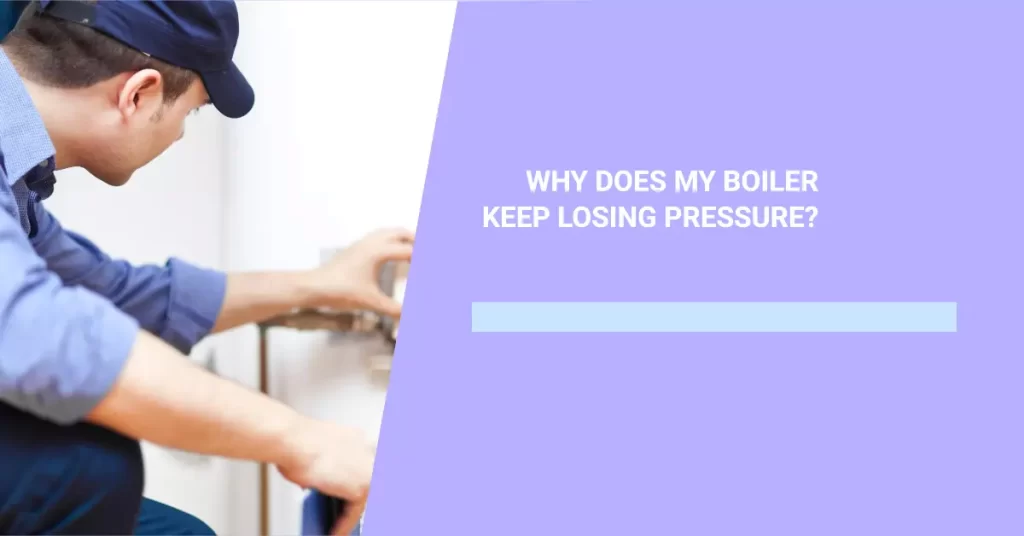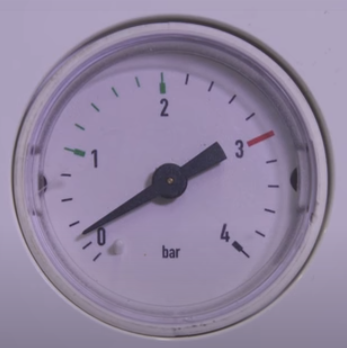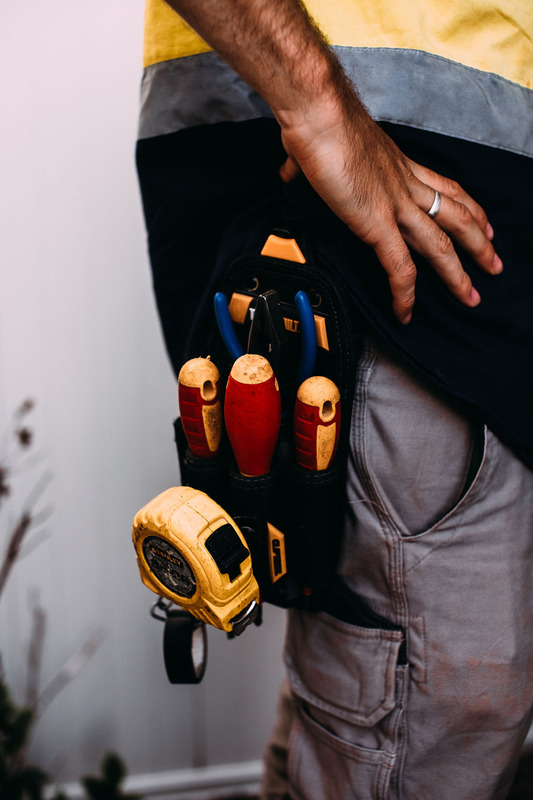At Boiler and Water Heater.com, we understand the frustration and inconvenience that comes with a boiler that keeps losing pressure. If you’re experiencing this problem, you’re not alone. Many homeowners encounter this issue, and it’s essential to address it promptly to ensure the optimal functioning of your heating system.
In this comprehensive guide, we’ll delve into the reasons behind a boiler losing pressure and provide you with expert advice on how to resolve the issue effectively.

Why Does My Boiler Keep Losing Pressure?
Frequent boiler pressure loss can result from faulty relief valves, bled radiators, expansion vessel issues, or pipe leaks. Common causes are bleeding air/water from radiators or leaks from radiator valves and other components. Pinpointing the root issue like a leak or defective valve through diagnosis allows proper repairs to address the pressure loss, some of which may be DIY fixes.
If your boiler pressure keeps dropping, especially when the heating is off, and you have to top it up regularly, it indicates a bigger problem that needs to be investigated quickly. Some common reasons are any type of leak in the heating system, after bleeding radiators and a fault in the expansion vessel.
Boiler Pressure Too Low? Here’s What You Need to Know
Before we dive into the potential causes of pressure loss in your boiler, let’s first understand why pressure is crucial in the functioning of a boiler. Your boiler operates by heating water, which then circulates through the system to provide warmth in your home. The pressure within the boiler system ensures that this heated water can flow effectively and reach all the necessary areas, such as radiators or underfloor heating systems.
Common Causes of Pressure Loss
- Bleeding Radiators: One common reason for pressure loss is the presence of air within the system. When air accumulates in the radiators, it can lead to reduced pressure. Regularly bleeding your radiators can help eliminate trapped air and prevent pressure loss.
- Leaking Pipes or Components: A leak within your boiler system can cause a gradual loss of pressure over time. Inspect your boiler and associated pipes for any visible signs of leakage, such as dampness or water stains.
- Faulty Pressure Relief Valve: The pressure relief valve is designed to release excess pressure from the system. If this valve becomes faulty, it may continuously release water, causing a drop in pressure. A professional inspection is necessary to diagnose and rectify this issue.
- Expansion Vessel Problems: The expansion vessel in your boiler system accommodates the expansion of water as it heats up. If the vessel becomes damaged or loses its pressure charge, it can lead to pressure fluctuations or loss. Contact a qualified technician to inspect and service the expansion vessel.
- Water Pressure from the Mains Supply: In some cases, low water pressure from the mains supply can contribute to pressure loss in your boiler. Contact your water supplier to ensure that the water pressure entering your property meets the necessary requirements.
Resolving Pressure Loss Issues
To address the issue of pressure loss in your boiler effectively, we recommend the following steps:
- Check and Adjust Pressure: Begin by checking the current pressure reading on your boiler’s pressure gauge. If it’s below the recommended level (usually around 1 to 1.5 bar), you’ll need to repressurize the system. Consult your boiler’s user manual for specific instructions on how to do this correctly.
- Bleed Radiators: If air is trapped within your radiators, bleeding them can alleviate pressure loss. Using a radiator key, release any trapped air by opening the bleed valve until water begins to flow consistently.
- Inspect for Leaks: Thoroughly examine your boiler, pipework, and radiator valves for any signs of leakage. If you detect a leak, it’s essential to seek professional assistance to repair or replace the damaged components.
- Check the Pressure Relief Valve: Verify that the pressure relief valve is functioning correctly. If it’s continuously discharging water, it may need to be replaced by a qualified engineer.
- Consult a Professional: If you’ve tried the above steps and are still experiencing pressure loss, it’s best to contact a certified heating engineer. They will have the expertise and knowledge to diagnose and resolve more complex issues related to your boiler system.
Preventive Maintenance and Regular Servicing
To maintain optimal boiler performance and prevent pressure loss in the future, regular maintenance and servicing are crucial. Consider scheduling an annual boiler service with a qualified professional. During the service, the technician will inspect and clean various components, ensuring efficient operation and minimizing the risk of pressure-related problems.
What is the correct pressure for a boiler?
The correct pressure for a boiler is between 1 bar and 1.5 bar when the heating is off. The green area on the pressure gauge on the front of the boiler shows you exactly what the pressure should be. It is important the pressure does not climb too high when heating is on and you should know how to lower it if needed.

What Should Boiler Pressure Be When Heating is Off?
Can a boiler lose pressure without a leak?
In the vast majority of boilers that lose pressure, the cause will be a water leak, whether that is in the pipe joints, radiator valves or radiators themselves. If you have checked and found no leaks, it is likely an internal boiler leak that isn’t easily spotted. Contact a qualified engineer to investigate.
Pressure dropping on boiler every day
The most common reasons for a boiler to lose pressure are: a bigger system leak, a faulty pressure relief valve that’s been damaged by a problem with the expansion vessel, as well as radiators that have been bled but then the system not topped up after. These issues can cause a pressure loss occurring daily if not fixed in time.
Boiler pressure drops when hot water is running
If you get a pressure drop when hot water is running, this is a sign of a leak. You may not see obvious signs of a leak under the boiler, or other visible parts of the heating system. The heat exchanger within the boiler could be leaking where the water drips into the condensate pipe so you don’t see any visual signs.
With combi boilers, when water pressure drops below 0.5 bar of pressure, a pressure sensor inside the boiler detects the change and causes the boiler to switch off. This is a precautionary measure to stop the boiler from operating without adequate levels of water which can cause it to overheat.
What Happens If Boiler Pressure Is Too High?
What happens if there is no pressure in the boiler?
If there is low or no pressure in the boiler you have lost water which it needs to work efficiently. Parts in your boiler won’t be damaged by this, but the boiler has to work harder to heat the house up and provide hot water, increasing energy bills. Your boiler may not even start up until pressure has been raised.

Conclusion
By familiarising yourself with the common causes and taking the appropriate steps to resolve the issue, you can restore your boiler’s functionality and ensure a warm and comfortable home. Remember, if you encounter persistent pressure loss or require professional assistance, don’t hesitate to reach out to an experienced heating engineer, we recommend Hometree who are here to help you enjoy the benefits of a reliable and efficient boiler system.

